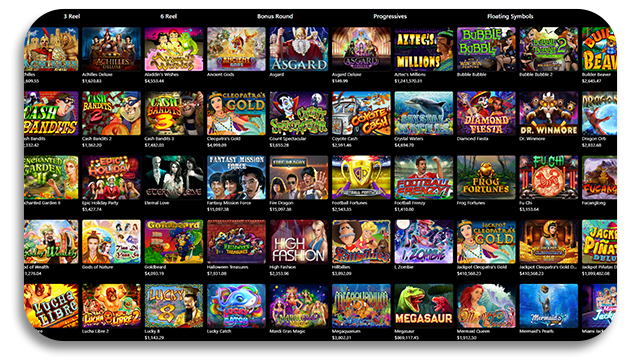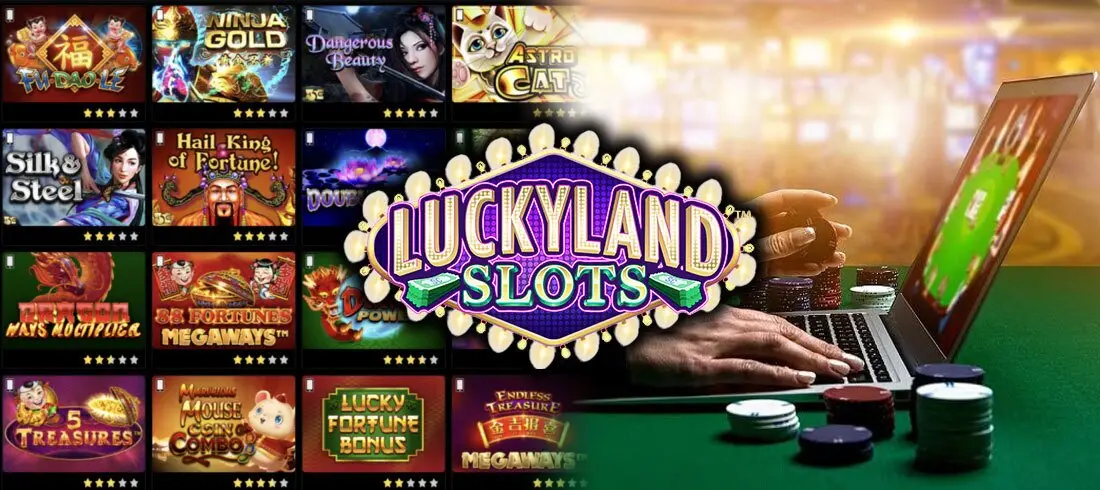How Do you Know When a Slot Machine is Going to Hit?
The most common question I get about slots is some variation of “When is a slot machine loose?” People always want to know how they can identify a slot machine that’s going to hit.
This post shares a few truths about slot machine play that reveal signs that a slot machine is due for a win. I’m not talking about the kind of superstitions or magical thinking behind most slot machine strategy copy you find online. I want to use basic math to share some assumptions you can make about the odds of winning on a given slot machine.
Being realistic about the odds of a slot machine hitting starts with understanding what an independent event is.
What’s an Independent Event?
Games of chance like slot machines revolve around the science of probability.
In that field, the term “independent event’ refers to any even that’s not affected by other events.
The classic example of an independent event is a coin toss. When you flip a coin, the odds of either side landing face-up are 50%. The outcome of a coin toss is not affected by the outcomes of any coin tosses in the past. A coin toss is therefore an independent event.
Of course, the human brain is designed to see and react to patterns, even ones that aren’t there. Michael Shermer, publisher of Skeptic magazine, calls the human brain a “belief engine,” a pattern-recognition machine that helps us find and create meaning. It’s a survival strategy, and that goes a long way toward explaining why some people believe so deeply in things like hot and cold slots and winning/losing streaks.
If I tell you that you have a 4 in 5 chance of winning $1 million, it’s easy for your brain to overlook the fact that you still stand to lose 20% of the time. Probability is always expressed as a percentage on a scale from 0 to 100, where 0 is an impossibility, and 100 is a certainty. That 4 in 5 chance, converted to a decimal, is 0.8, which already looks a little less promising than “4 in 5.”
Let’s talk a bit about probability before we talk about how you can tell when a slot machine is hot, or ready to hit.
Probability is a Guide, not a Map
We’re going to talk a little bit about the probability of various slot machines later in this post, so I wanted to talk a bit about what probability is and how it’s often misused or misinterpreted by slot machine players and writers.
In mathematical terms, an event’s probability is a product of the number of ways it can happen divided by the total number of possible outcomes.
Let’s imagine rolling a six-sided die. What’s the probability that any one number comes up?
Since each total has only one way it can occur (a single side of the die), and since there are six sides total, the probability of any number being rolled is 1 in 6. That’s one way of occurring divided by the total number of possible outcomes.
Here’s where people get lost – does that mean that if I roll a six-sided die six times, I’ll get one of each possible result?
As anyone who’s played a little Dungeons & Dragons can tell you, you most likely won’t roll one of each number if you roll the die six times.
That’s because probability is a guide to what might happen and not a map of what will definitely happen.
Thinking back to our coin toss from earlier – after 100 coin tosses, you’re not likely to have anything close to a 50/50 result. After 1 million coin tosses, your numbers will have regressed a little closer to 50/50.
It’s only after infinite coin tosses that you’d see a literal 50/50 split between heads and tails. As you approach infinity, your results will more closely resemble the actual odds.
Of course, numbers like infinity are impossible for our minds to conceive. It’s also a lot more fun to think about slots as “hot” or “cold” than to try and understand things like probability and independent events.
How Often Do Slot Machines Hit?
The two most common ways of talking about slot machine probability are hit frequency and payback percentage. Both numbers are flawed, but they’re also about the best way we have of comparing these games to one another in terms of odds.
An Explanation of Slot Machine Hit Frequency
Hit frequency describes what percentage of spins will produce a hit. It’s a simple number that’s easy to digest and translate into real-time play for most slot players. If you’re playing a slot that has a 25% hit frequency, you should win some kind of jackpot on 1 out of every 4 spins.
However, if you’ve been paying attention, you know that this statistic is meaningless.
In short, slots players care about more than a game’s hit frequency – they want to know how often they’ll win the game’s bigger prizes.
The second issue I have with hit frequency is the same issue I have with every gambling statistic – these are theoretical numbers, and your actual results may look nothing like the percentage shows. This is especially true over the short term. If you play a game that’s supposed to have a 25% hit frequency four times, you shouldn’t expect to get one hit. You may get four, you may get zero.
Remember, probability is a guide, not a map.
Breaking Down Slot Machine Payback Percentage
A slot’s payback percentage is a theoretical figure of how much of each bet will get paid back to a player over time. If a slot has a 90% payback percentage, that means it’s programmed to keep about 10% of a player’s bankroll over time.
The phrase “over time” here is crucial.
You most likely won’t experience exactly 10% bankroll loss playing that 90% payback percentage game. That’s because the game’s top payouts influence your likelihood along with the smaller more regular payouts.
Players who don’t hit big jackpots are facing a tough go at a 90% payback percentage, essentially “losing” $0.10 of every $1 bet into the game, on every spin.
How to Tell When a Slot Machine is Going to Hit
Okay, it’s time to reveal the big secret.
You can tell when a slot machine is going to hit by the fact that you just lined up a winning combination of symbols.
Every single time I’ve managed to line up a winning combo, the machine has hit and paid me out my winnings.
There’s literally no way to know when a slot is “hot,” ready to hit, ready to pay out, or anything else.
The math behind the probabilities that determine slot payouts don’t reveal or give away the fact that they’re about to hit. It’s not part of the programming, and why would it be?
There are no such thing as “hot” or “cold” slots. Each spin gives the player an independent event, which has its own odds of winning, unaffected by recent or past outcomes.
Pretty often. You can easily make three spins on a game like that and not win once. You could also make three spins and hit on every spin. Such is math. It’s frustrating, but it’s also why slots are among the most profitable games on the floor, and why they’re popular with casino operators.
I’d like to point out that hot and cold streaks can absolutely be seen, but they can only be seen looking backwards. There’s no real predictive value in analyzing a slot machine’s winning and losing streaks, outside of simple mathematical curiosity.
Is it possible to win two progressive jackpots on back-to-back spins? Absolutely. It’s not very likely, but technically speaking, it is possible. By the same logic, it’s possible to lose a ridiculous number of spins in a row and still be very much in line with the mathematics that drive slots.
Remember – these machines produce independent events and are programmed for long-term play.
Conclusion
You can’t tell when a slot is about to hit. You also can’t tell when a slot is about to start losing.
Streaks in slot machine wins and losses are a myth.
Casinos simply don’t need gimmicks to make slot machines popular.
Most popular
See all popularThe best blackjack casinos go to great lengths to draw in players. Many mega-casinos resemble more of a resort atmosphere than a casino, which is what the casinos are after....
read more
Casino games are a lot of fun, but sometimes you need a break from normal card games and slot machines. One of the best ways to shake things up is...
read more
States that don’t allow gambling are dwindling as the gambling movement is gaining traction across much of the United States. However, many states are still working on legislation to allow...
read moreMost popular
See all popularThe best blackjack casinos go to great lengths to draw in players. Many mega-casinos resemble more of a resort atmosphere than a casino, which is what the casinos are after....
read more
Casino games are a lot of fun, but sometimes you need a break from normal card games and slot machines. One of the best ways to shake things up is...
read more
States that don’t allow gambling are dwindling as the gambling movement is gaining traction across much of the United States. However, many states are still working on legislation to allow...
read moreMost Recent
See all recent
Space XY isn’t your run-of-the-mill game that you can play at any online casino. It’s pretty unique in terms of the mechanics and how the gameplay works. Space XY also...
read more
The popular DuckyLuck no deposit bonus for Wrath of Medusa was only available when the site launched in 2020. The good news, however, is that you can claim similar bonuses...
read more
There are many online slots like LuckyLand that you can play. In fact, the best real money online casinos carry an extensive collection of slot titles that are equally fun...
read more



